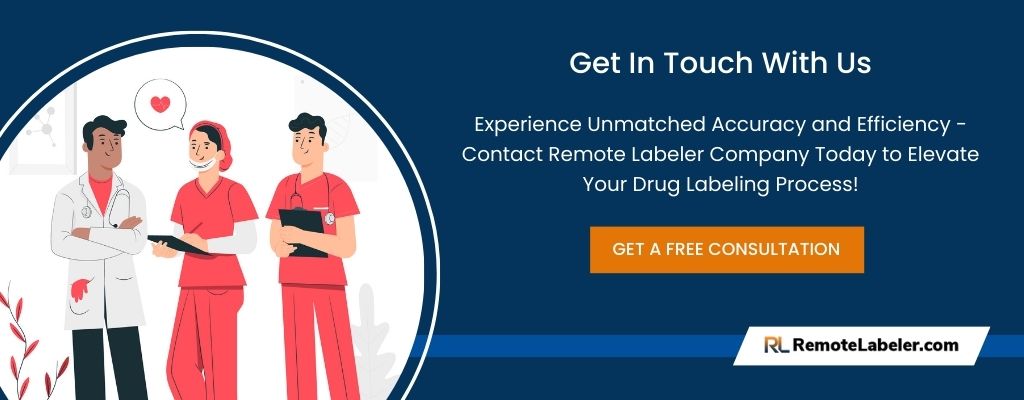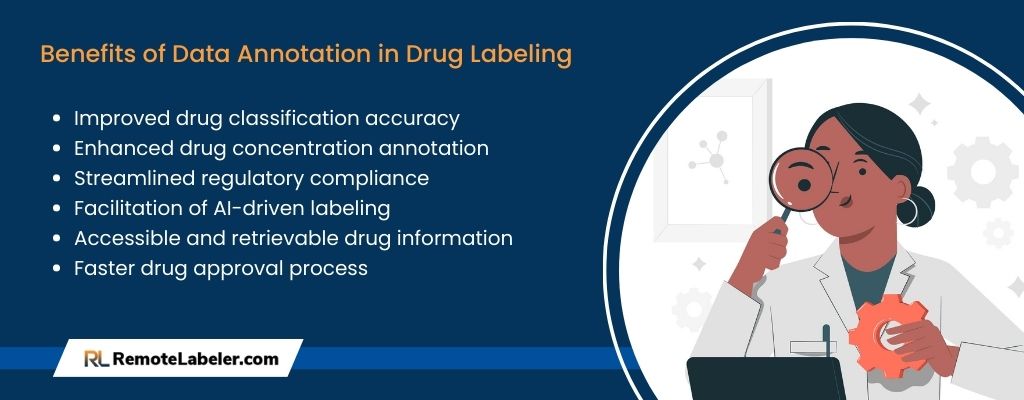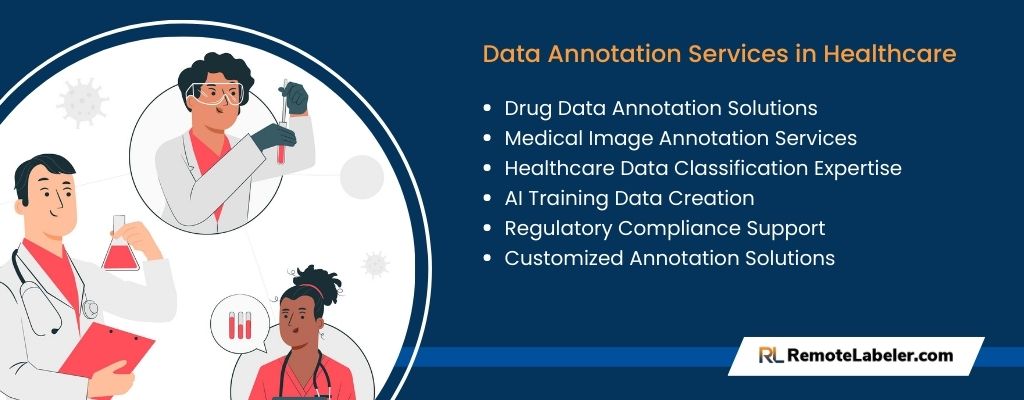In the ever-evolving landscape of healthcare, accurate drug labeling plays a pivotal role in ensuring patient safety, treatment effectiveness, and regulatory compliance. As data labeling and classification gain prominence in the industry, it becomes imperative to understand the critical role drug labeling plays and how data annotation can significantly enhance this process. This article delves into the intricacies of drug labeling in healthcare, the concept of data annotation, and the unparalleled benefits it brings to the pharmaceutical realm.
The Critical Role of Drug Labeling in Healthcare
In the complex landscape of modern healthcare, drug labeling plays a critical role in providing vital information about medications to healthcare professionals, patients, and regulatory bodies. Accurate drug labeling is the cornerstone of safe and effective drug administration, as it enables healthcare providers to make well-informed decisions while minimizing the risks associated with medication use. The process involves meticulous attention to detail, encompassing drug names, dosages, administration routes, indications, contraindications, warnings, and much more. In the absence of comprehensive drug labeling, the potential for medication errors, adverse reactions, and treatment inefficiencies increases significantly.
Now, let’s explore the key reasons why drug labeling holds such importance in the realm of healthcare and how data annotation can enhance this critical process.
- Mitigating Risks: Accurate drug labeling acts as a safeguard against potential risks associated with medication use. Properly labeled drugs reduce the chances of medication errors, adverse reactions, and overall patient harm.
- Regulatory Compliance: Health authorities worldwide mandate specific drug labeling requirements to ensure standardization and transparency. Complying with these regulations is crucial for drug manufacturers to obtain approval for their products.
- Facilitating Prescribing Decisions: Physicians heavily rely on drug labels to make informed decisions when prescribing medications. A clear and concise drug label helps healthcare professionals understand dosages, indications, contraindications, and possible interactions.
- Patient Empowerment: Well-structured drug labeling empowers patients by providing essential information about their medications. Patients can better adhere to treatment plans and understand potential side effects, enabling them to take an active role in their healthcare journey.
- Pharmacovigilance: Accurate drug labeling aids in pharmacovigilance efforts, allowing healthcare providers to track and report adverse events associated with specific medications promptly.

Introduction to Data Annotation in Healthcare
Healthcare is an industry perpetually engulfed by an ocean of data. However, data in its raw, unstructured form, lacks the capacity to inform and elucidate. This is where data annotation makes its grand entry, functioning as the bridge that connects data’s potential with its actual utility in driving innovation and improvement. In essence, data annotation involves the assignment of relevant labels or markers to data sets, transforming this raw data into a structured and interpretable format.
The utilization of data annotation within healthcare is extensive and manifold, encompassing but not limited to:
- Medical Imaging: In radiology, cardiology, or pathology, data annotation aids in the delineation and recognition of different structures and anomalies, powering image-based diagnostics.
- Clinical Documentation: It assists in parsing vast amounts of clinical records, converting narrative text into a structured format, thereby enhancing accessibility and usability.
- Genomic Analysis: The technique of data annotation simplifies the decoding of massive genomic sequences, streamlining research in genetics and personalized medicine.
- Drug Labeling: In the pharmaceutical sector, data annotation fortifies the process of drug labeling, raising its accuracy, efficiency, and regulatory compliance.
Data annotation is not just about adding labels, it’s about contributing a valuable context to the healthcare narrative, a narrative that forms the bedrock of numerous critical processes, drug labeling being one of them.
Benefits of Data Annotation in Drug Labeling
The advantages of data annotation in drug labeling extend beyond conventional labeling practices. The integration of data annotation methodologies enables the pharmaceutical industry to harness the power of machine learning and AI-driven solutions effectively. By meticulously annotating drug-related data, such as drug concentrations and chemical structures, machine learning algorithms can be trained to recognize and interpret complex information accurately. This not only expedites the drug labeling process but also lays the groundwork for the development of innovative tools that can aid healthcare professionals in making informed decisions and advancing medical research.

Improved Drug Classification
Incorporating data annotation techniques such as polygon annotation can revolutionize drug classification. Polygon annotation enables the delineation of complex drug structures and concentrations on labels with unmatched precision. This assists healthcare professionals in comprehending the drug’s chemical composition and aids in accurate identification.
Enhanced Drug Concentration Annotation
Data annotation allows for the meticulous annotation of drug concentrations on labels. Precise delineation of concentration details facilitates appropriate dosing and reduces the risk of administering incorrect amounts of medication, safeguarding patients from potential adverse effects.
Streamlined Drug Labeling Requirements
Data annotation expedites the drug labeling process by ensuring compliance with stringent regulatory requirements. Accurate annotations help drug manufacturers meet the necessary guidelines set forth by health authorities, leading to faster approvals and time-to-market for essential medications.
Facilitating AI-Driven Drug Labeling
As artificial intelligence (AI) continues to reshape the healthcare landscape, data annotation becomes indispensable for training AI algorithms in drug labeling tasks. These annotated datasets enable AI models to recognize drug-related information, leading to more efficient and reliable drug labeling automation.
Improving Drug Information Accessibility
Through data annotation, drug labeling information becomes more accessible and retrievable. This empowers healthcare professionals and patients to obtain essential drug-related data quickly, fostering better decision-making and treatment outcomes.
Data Annotation Services by Remote Labeler Company
At the forefront of the data annotation revolution in healthcare, Remote Labeler Company offers cutting-edge services tailored to meet the specific needs of the pharmaceutical and medical industries. With a team of expert annotators and a commitment to precision, Remote Labeler Company provides an array of data annotation solutions designed to enhance drug labeling and streamline healthcare processes. Here are some key services they offer:

- Drug Data Annotation: Remote Labeler Company excels in annotating drug-related data, including drug concentrations, chemical structures, dosage instructions, and adverse effects. Their meticulous annotations enable pharmaceutical companies to meet stringent regulatory requirements while ensuring clear and accurate drug labeling.
- Medical Imaging Annotation: Leveraging advanced medical annotation techniques, Remote Labeler Company assists in annotating medical images, such as X-rays, MRIs, and CT scans. These annotated images empower healthcare professionals to make faster and more accurate diagnoses, improving patient outcomes.
- AI Training Data: Remote Labeler Company provides high-quality annotated datasets for training AI algorithms in healthcare applications. By annotating vast amounts of medical data, including electronic health records and medical images, they contribute to the development of AI-driven solutions that can revolutionize the healthcare industry.
- Clinical Text Annotation: With expertise in natural language processing (NLP), Remote Labeler Company offers clinical text annotation services. Annotated clinical text data aids in information extraction, medical coding, and automated report generation, optimizing healthcare workflows.
- Disease Annotation: Accurate disease annotation is essential for medical research and epidemiological studies. Remote Labeler Company’s disease annotation services help identify and categorize diseases within medical records, contributing to a deeper understanding of healthcare trends and patterns.
- Pharmacovigilance Support: Remote Labeler Company assists healthcare organizations in pharmacovigilance efforts by annotating adverse drug reactions and other critical safety data. This service enhances drug safety monitoring and regulatory compliance.
Conclusion
In an era where data-driven solutions are reshaping the healthcare landscape, data annotation plays a pivotal role in enhancing drug labeling and overall healthcare practices. Precise drug data annotation empowers pharmaceutical companies to comply with regulatory requirements, while medical annotation facilitates faster and more accurate diagnoses.
With Remote Labeler’s specialized data annotation services, the healthcare and pharmaceutical industries can unlock the full potential of AI-driven drug labeling, advancing medical research, and empowering healthcare professionals with accurate, accessible, and actionable information. Embracing data annotation in healthcare labeling is not just a necessity but a positive step toward shaping a brighter and more efficient future for the industry.
Contact us today to discuss your data annotation needs and take the first step towards elevating your drug labeling endeavors to new heights!
- Emerging Trends and Future Outlook: The Data Labeling Industry in 2024-2030 - December 8, 2023
- Landmark Annotation: Key Points - November 6, 2023
- All You Should Know About Bounding Box Annotation - November 5, 2023